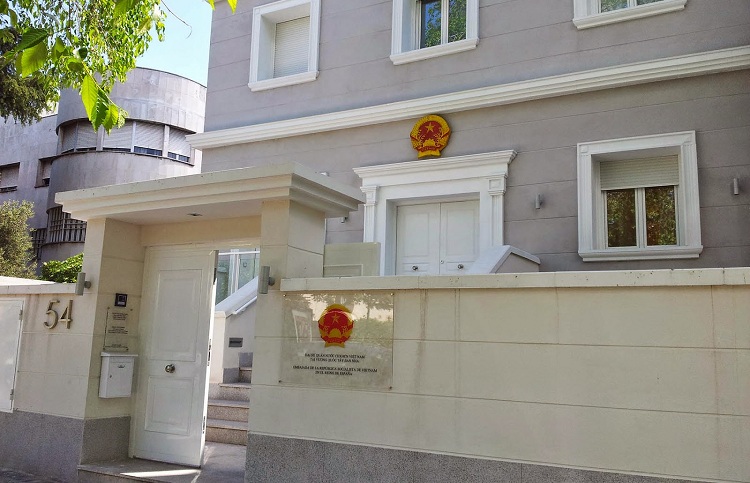The Diplomat
The Official State Gazette (BOE, by its Spanish acronym) published yesterday the entry into force of the Agreement between Spain and Vietnam on exchange and mutual protection of classified information, a text with which the Government aims to promote the development of the Spanish defense industry and bilateral trade exchanges in this sector, “currently at a low level”.
The aim of the agreement is to “ensure the protection of classified information exchanged between the parties” and to establish “the procedures and security arrangements for such protection”, according to the text published in the BOE.
The agreement was signed on March 27, 2019 in Madrid by the then director of the National Intelligence Center (CNI), Félix Sanz Roldán, and by Vietnam’s deputy minister of Public Security, Búi Ván Nam. It was also approved by the Council of Ministers on July 21, 2020 and authorized by the Congress and the Senate between the end of October and the beginning of December and has been in force, for an indefinite period, since January 21.
As indicated by the Government at the time of its approval and referral to the Cortes Generales (Spanish Parliament), “Spain’s international relations sometimes require the exchange of information which, because it affects security or national interests, must have a degree of classification and be subject to special processes of use and handling to preserve that integrity”.
Specifically, in the field of the defense and armaments industry, “manufacturing, assembly or supply contracts often involve the sharing of confidential devices or procedures, making it necessary to establish rules under which States can safely share such classified information”. The agreement is therefore an essential legal instrument that “will promote the development of the Spanish defense industry and bilateral trade in this sector, which is currently at a low level”.
Under the Agreement, the two parties undertake to transmit classified information through diplomatic channels or other channels agreed by the competent authorities, and to protect classified information transmitted electronically by cryptographic means, approved by mutual agreement. In the case of “bulk” classified information, the two parties shall mutually agree on a transport plan with appropriate security measures. In addition, classified information generated or exchanged between the two countries will be protected with the appropriate Security Classification Grade and the two parties will inform each other of any changes to their national laws and regulations affecting the protection of classified information.







